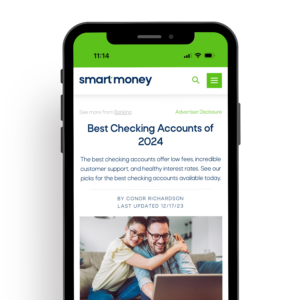Takeaways
- Conventional loans are issued by private lenders.
- Good credit scores and low debt-to-income ratios reduce the cost of borrowing.
- Larger down payments increase how much home you can afford and increase the chance of securing a high-quality loan.
- Conventional loan limits are adjusted based on the real estate market.
- For 2024, the conventional loan limit is $766,550.
To keep pace with the rapidly evolving real estate market first-time homebuyers must understand the loan requirements for various types of loans available to buyers. Mortgage requirements encompass everything from the type of loan, the criteria needed to qualify for the loan, credit score requirements, down payment ranges, and more. Here, we analyze what homebuyers can expect from conventional loan requirements, so that you have all the details you need to make an informed decision.
What is a Conventional Loan?
Simply put, a conventional loan is a type of mortgage not insured or guaranteed by the federal government. Instead, conventional loans are backed by private lenders such as banks, credit unions, and mortgage companies. Conventional loans are also conforming loans, which means they adhere to specific guidelines set forth by Freddie Mac and Fannie Mae, two government-sponsored enterprises. Conventional loans can be more challenging to qualify for as they require a good credit score, stable income, and a significant down payment. The good news is that they offer lower interest rates and flexible term lengths.
How Do You Qualify for a Conventional Home Loan?
Qualifying for a conventional home loan requires several considerations. First, lenders want to see a stable income. Lenders will analyze your employment history and prefer at least two years of consistent income from the same employer. Banks, credit unions, and other lenders also want to see a good credit score. Generally, a FICO score of 620 or higher is recommended but scores of 740 or above usually command the best interest rates [1].
The next criterion to consider is the size of your down payment. Generally, you must also provide a down payment, usually ranging from 3% to 20% of the home's purchase price. Higher down payments can result in lower interest rates and eliminate the need for private mortgage insurance (PMI). Furthermore, your Debt-to-Income ratio (DTI), which compares your gross monthly income with your monthly debt obligations, plays a significant role. Lenders typically prefer a DTI of 36% or lower, but some may allow up to 45%.
Get Smart With Your Money
Fresh weekly articles delivered straight to your inbox.
Enter your name and email for free tips and tricks.

What are the Credit Score Requirements?
Credit score requirements for conventional loans are important to keep in mind. Although most lenders typically require a minimum FICO score of 620, if you are trying to secure a low-interest rate on your mortgage, you should aim for a credit score of 740 or higher. However, each lender may have different thresholds or score requirements.
Lower credit scores don’t disqualify you from a conventional loan, but lenders may require larger down payments or charge higher interest rates. It's essential to maintain a healthy credit score, which you can do by paying your bills on time, maintaining a low credit utilization rate, and periodically checking your credit report for errors.
Smart Tip:
Get your credit score in shape before applying for a conventional loan. This will help you reduce the cost of borrowing and give you the flexibility to purchase a more expensive home [1].
Down Payment Requirements
The size of your down payment matters because down payments affect what type of home insurance you need, the interest rate lenders will charge, and how much house you can afford. Down payment requirements for conventional loans vary widely based on your credit score, loan term, property type, and the lender's policies.
You should expect to pay a down payment ranging from 3% to 20% of your home's purchase price. The higher your down payment, the less total mortgage you will need, and the lower the down payment, the higher your mortgage. If you have a low credit score, your down payment will likely need to be higher to make your mortgage application more attractive to hesitant lenders because it lowers the loan amount.
Why is making a 20% down payment such an evangelized financial home-buying rule? Because if you pay 20% or more, you can avoid paying for private mortgage insurance (PMI). Private mortgage insurance is an additional monthly expense lenders require you to pay because they are hesitant about your application. By avoiding PMI, you can significantly lower your monthly mortgage payment. Shop around with different lenders to find the most favorable down payment conditions.
Mortgage Debt-to-Income Ratio Requirements
The debt-to-income (DTI) ratio is another critical factor in qualifying for a conventional loan. This ratio compares your monthly debt obligations to your gross monthly income. Generally speaking, most private lenders prefer a DTI of 36% or lower, meaning no more than 36% of your income should go toward servicing debt. These monthly debt payments can include minimum payments on credit cards, student loans, car notes, or personal loans.
However, in special circumstances, some lenders may allow a DTI ratio of up to 45%, particularly if the borrower exhibits significant financial stability in other areas. Maintaining a low DTI ratio increases your attractiveness to lenders and can lead to more favorable loan terms.
Reducing your other debts before applying for a conventional loan will increase the quality of your mortgage application and decrease your borrowing costs, putting more money back into your pocket.
Conforming Loan Limits
In 2024, the conforming loan limit for mortgages acquired by Fannie Mae and Freddie Mac increased to $766,550 for one-unit properties in most parts of the United States. This increase, announced by the Federal Housing Finance Agency (FHFA), follows a 5.56% average increase in U.S. home values from the third quarters of 2022 to 2023 [1].
What happens if you exceed the conforming loan limit for mortgages? Well, you get a jumbo loan.
For high-cost areas where median home values exceed 115% of the baseline conforming loan limit, loan limits can reach up to $1,149,825 [2].
This ceiling also applies to special statutory areas like Alaska, Hawaii, Guam, and the U.S. Virgin Islands. With rising home values, conforming loan limits are higher in nearly all U.S. counties.
Smart Summary
Conventional loans are used by millions of Americans to buy their first home. Depending on how much house you can afford, a conventional loan could be the right financial fit. Before applying for a new loan, do your research. In parallel, cut your debt and increase your income to qualify for the mortgage you need to afford the house you really want. Owning a house is one of the best investments you can make. Being prepared for one of the biggest transactions you will ever make is a smart money move.
Frequently Asked Questions
With mortgages, there is no one size fits all. The best type of loan depends on your financial situation, the cost of the house you want to buy, and the size of your down payment. Check out the best mortgage rates available to you.
If you are in the market for a house, as a first-time home buyer or serial purchaser, research the best interest rates available. Get your financial house in order and make your debt-to-income ratio attractive to lenders.
Saving a down payment of at least 20% of the purchase price is a smart money move. It eliminates the need to pay private mortgage insurance and forces the financial discipline necessary to save. As you save for your down payment, stash your cash in a high-yielding savings account.
Once you have started to save cash for a down payment, you are often left wondering where to store these funds. Putting your down payment funds in a high-yield savings account is a smart money move. It allows your funds to accrue interest income, putting more money back into your pocket. Here is how to open an online high-yield savings account.
(1) National Association of Home Builders. FHFA Boosts Conforming Loan Limits for 2024. Last Accessed February 6, 2024.
(2) Federal Housing Finance Agency. FHFA Announces Confirming Loan Limit Value for 2024. Last Accessed February 6, 2024.











